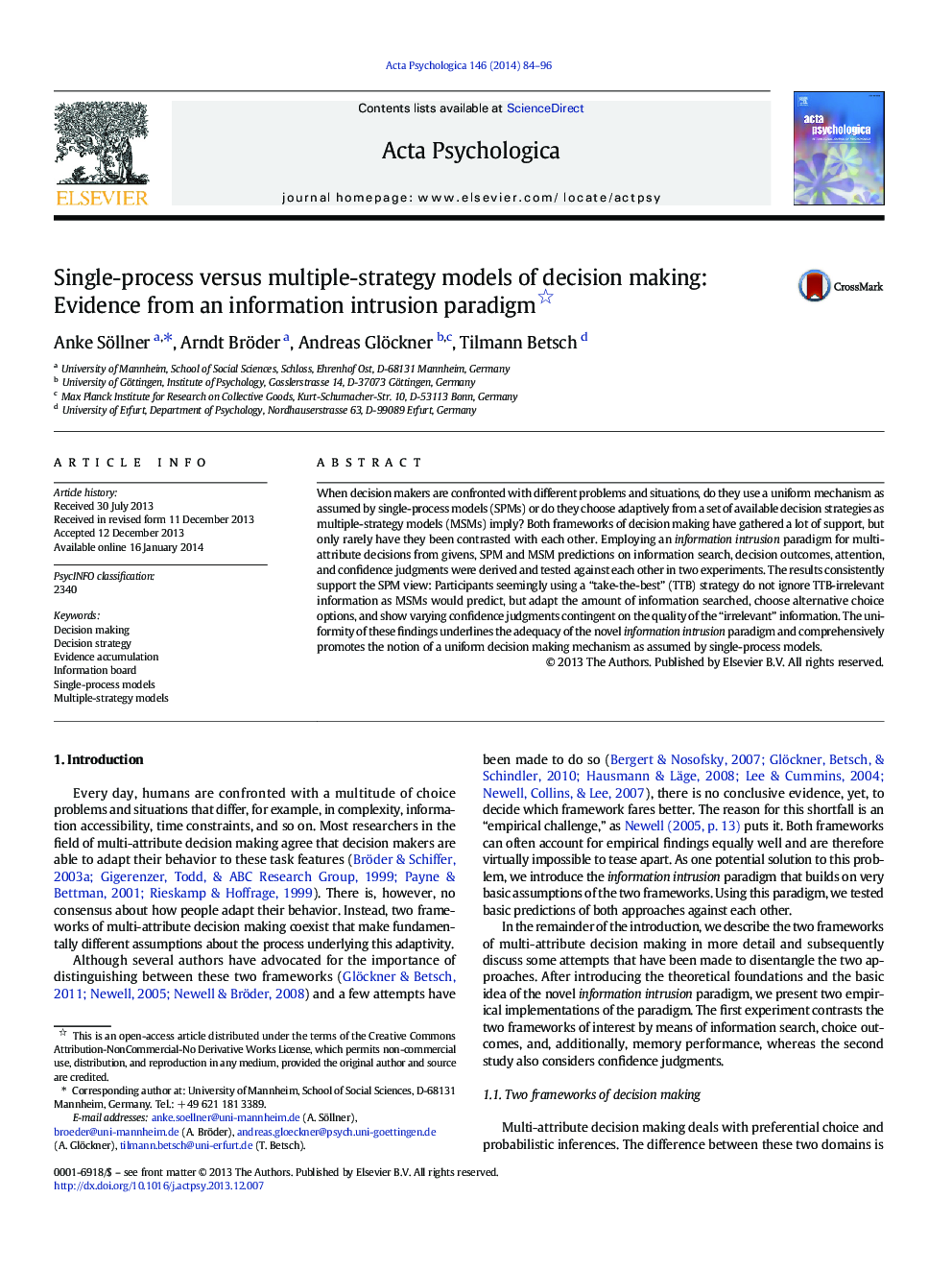| Article ID | Journal | Published Year | Pages | File Type |
|---|---|---|---|---|
| 7278026 | Acta Psychologica | 2014 | 13 Pages |
Abstract
When decision makers are confronted with different problems and situations, do they use a uniform mechanism as assumed by single-process models (SPMs) or do they choose adaptively from a set of available decision strategies as multiple-strategy models (MSMs) imply? Both frameworks of decision making have gathered a lot of support, but only rarely have they been contrasted with each other. Employing an information intrusion paradigm for multi-attribute decisions from givens, SPM and MSM predictions on information search, decision outcomes, attention, and confidence judgments were derived and tested against each other in two experiments. The results consistently support the SPM view: Participants seemingly using a “take-the-best” (TTB) strategy do not ignore TTB-irrelevant information as MSMs would predict, but adapt the amount of information searched, choose alternative choice options, and show varying confidence judgments contingent on the quality of the “irrelevant” information. The uniformity of these findings underlines the adequacy of the novel information intrusion paradigm and comprehensively promotes the notion of a uniform decision making mechanism as assumed by single-process models.
Related Topics
Life Sciences
Neuroscience
Cognitive Neuroscience
Authors
Anke Söllner, Arndt Bröder, Andreas Glöckner, Tilmann Betsch,
